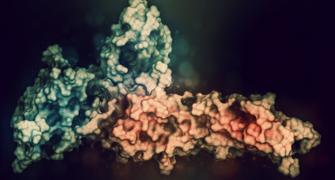Technology Platforms
Ligand Binding Assay
 Services & Solutions
/
Bioanalytical – Small & Large Molecules
/
Technology Platforms
/
Ligand Binding Assay
Services & Solutions
/
Bioanalytical – Small & Large Molecules
/
Technology Platforms
/
Ligand Binding Assay

Ligand binding assay (LBA) plays a pivotal role in pharmacokinetic (PK) and immunogenicity testing, serving as indispensable tools for evaluating drug concentrations, as well as the presence of anti-drug antibodies (ADAs) in biological samples.
PK Analysis
In the context of PK analysis, ligand binding assays are utilized to measure the concentration of a drug or its metabolites in biological matrices, such as serum, plasma, or tissue, over time. These assays provide critical insights into drug absorption, distribution, metabolism, and excretion, thereby informing dosing regimens, optimizing therapeutic outcomes, and ensuring drug safety.
Immunogenicity
Similarly, in immunogenicity testing, ligand binding assays are employed to detect and quantify the formation of ADAs, which may impact drug efficacy, safety, and tolerability. By assessing the immunogenic response to therapeutic proteins, monoclonal antibodies, or other biologic agents, these assays enable the identification of potential adverse reactions, including immune-mediated adverse events and loss of treatment efficacy. Moreover, ligand binding assays facilitate the characterization of ADA specificity, affinity, and neutralizing capacity, aiding in the development of risk mitigation strategies and personalized treatment approaches.
- Cut points determination
- Sensitivity
- Hook effect
- Precision
- Selectivity and matrix interference
- Drug tolerance and target interference
- Robustness
- Short-term stability (freeze-thaw stability and benchtop stability)
- Long-term stability
- Domain specificity
Platforms of LBAs for PK and immunogenicity
- ELISA (Colorimetric, Fluorescence, Chemiluminescence) and Hybridization ELISA (HELISA)
- MSD (Electrochemiluminescence)
- Quanterix Simoa
- Gyros
Molecule Types
- Monoclonal antibodies
- Antibody conjugates
- Multi-specific antibodies, antibody fragments
- Therapeutic proteins
- Single chain and fusion proteins
- Peptides
- Pegylated peptides and proteins
- Oligonucleotides
Supported Services
- Method development and transfer
- Method qualification and validation
- Cross-validation
- Biological sample analysis
- Critical reagent labeling, bridging, and extension
- Statistical analysis (ADA/NAb cut point analysis, etc.)
Key experiments in method validation
- PK
- Accuracy and precision
- Sensitivity and curve range
- Specificity (cross-reactivity)
- Selectivity and matrix interference
- Dilution linearity and hook effect
- Robustness
- Carryover
- Short-term stability (freeze-thaw stability and benchtop stability)
- Long-term stability
Our Small Molecule Bioanalysis Services Include:
- Method development, transfer, partial validation, method qualification and validation, cross validation
- Sample Analysis
- Nonclinical toxicokinetic /pharmacokinetic screening
- Clinical PK/bioavailability studies
- Bioequivalence studies, including highly variable drugs and narrow therapeutical window drugs
- Therapeutic drug monitoring studies
- Drug-drug interaction studies
- Protein binding studies
- Tissue analysis
- Pediatrics bioanalysis involving micro-sampling techniques
- Liposomal drugs
- Inhalant drugs/transdermal patch with ultra-low sensitivity requirement
- Elemental Analysis (Metals)
- Amino acids analysis
- Pegylated drugs
- LNPs
- Chiral compounds requiring chiral separation
- Dose escalation First-In-Human studies
- Global late phase III studies
- Endogenous analytes or biomarker assays
- Multi-domain therapeutical proteins, including mAb, bispecific antibodies, ADCs (antibody-drug conjugates), PDCs (peptide-drug conjugates)
- Oligonucleotides
Our scientific expertise extends to projects that combine small and large-molecule bioanalytical activities such as protein, antibody, antibody-drug conjugates, biomarker analysis , gene and cell therapy drugs as well using mass spectrometry platform. A dedicated biologics LCMS team works together with our sponsors to tackle any bioanalytical challenges beyond the traditional small molecules bioanalysis.
Explore other Technology Platform Services from Frontage

Flow Cytometry
Supporting comprehensive quality assay development

Ligand Binding Assay
In the context of PK analysis, ligand binding assays are utilized to measure the concentration of a drug …

Automation
Automation plays a crucial role in industries; it allows experiments to be completed faster and with fewer errors.

Cell Based Assays
Resources To Consider


Ligand Binding Assays (LBAs) and Critical Reagents

A Competitive Ligand-binding Assay for the Detection of Neutralizing…

Utilizing Ligand Binding Assays (LBA) and Critical Reagents for Drug…

